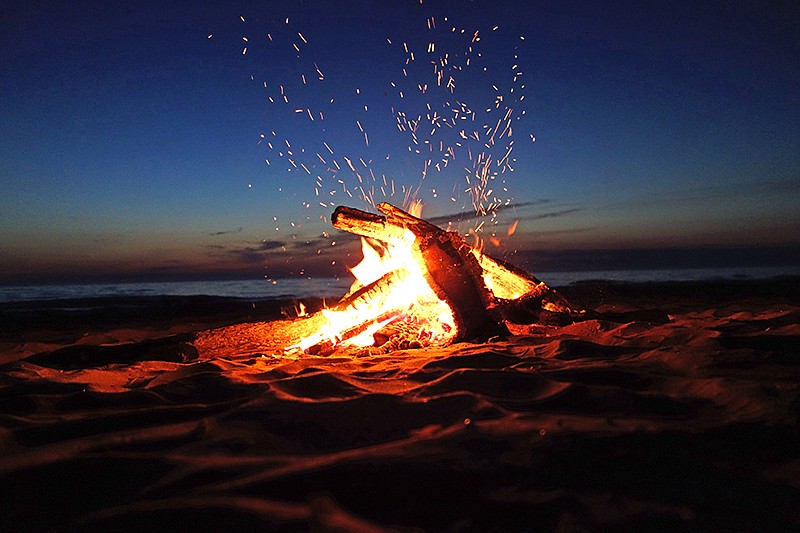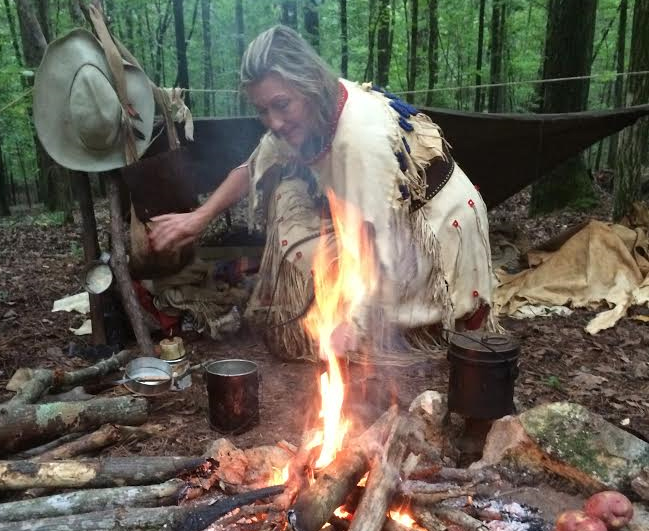More Info
If you want to test the waters of your survival skills, you don’t have to go as far as those who attend today’s rendezvous. Shriver-Buckner recommends trying a night in your backyard, building a fire using as little technology as possible and sleeping under the stars.And if it’s not for you, no harm, no foul.“Whatever you enjoy doing, there’s no apologies needed,” she says. “Just as long as you’re out there enjoying nature.”If you do decide to head into the wilderness unencumbered, some of her favorite primitive camping spots are Virgin Falls near Sparta, Tennessee, and along the Elk River, a tributary of the mighty Tennessee which runs through the Volunteer State and Alabama.
More Info
Rendezvous round the cornerDavid Crockett State Park near Lawrenceburg, Tennessee, is the site of “Davy Crockett Days” each August. Hosted by the Davy Crockett Longhunters, it features modern as well as primitive camping.
She's not proud to admit it, but Linda Shriver-Buckner once smuggled contraband.
During a Rocky Mountain National Rendezvous, Shriver-Buckner committed the crime of bringing in technology not available to American settlers: a humble match.
"People were surprised at how quickly I had a fire going that morning," she recalls with a laugh.
Shriver-Buckner is a fan of rendezvous like those, which involve going without any amenities not available to pioneers before the 1830s. Marked by the beginning of westward expansion, it was an era when primarily fur trappers roamed the rugged, unknown terrain, while inventions like the revolver and the telegraph were birthed back in cities along the East Coast. Out in the wilderness, those 1800's fur traders would "rendezvous" to barter their wares and gather their primitive supplies.
These days, there are regular mock rendezvous around the country, and they attract thousands. While some attendees aim to more closely mirror the time period than others, Shriver-Buckner says most take it very seriously. After all, that's where the fun's at.
Modern tents? Nope. Gas stoves? Nuh-uh. Guilty slip-ups aside, even lighters and matches are left behind.
"At American Mountain Man events, the only technology allowed are cameras," she says.
Outside of those rendezvous, Shriver-Buckner still aims to keep things simple, preferring primitive camping over accessory-laden excursions. The experiences bring her closer to nature, she says, and appeal to the survivalist in her.
"You want to see what you can do and how you can do it," Shriver-Buckner says. "To prove that you can not only survive, but thrive."
Her gear lists are short and sweet: flint and steel, a change of clothes, an axe, a few tarps to make an effective lean-to, and whatever food she thinks she'll need for the trip. The specifics change on where she plans on camping. If near a fishable river, for example, she'll bring along old-fashioned fly rods so she can catch dinner.
Shriver-Buckner's first foray into primitive camping was at Mt. Aetna Summer Camp in Maryland, which she attended as a young girl. A few courses on amenity-free camping and pioneering bloomed into a lifelong hobby, to the point that she now has her own tepee in Montana in which she regularly vacations.
"There's nothing better than sleeping in a tepee," she says. "With a tent, you have to cook outside of the tent, but with a tepee, you can have your fire and cook inside. It's so warm and cozy."

